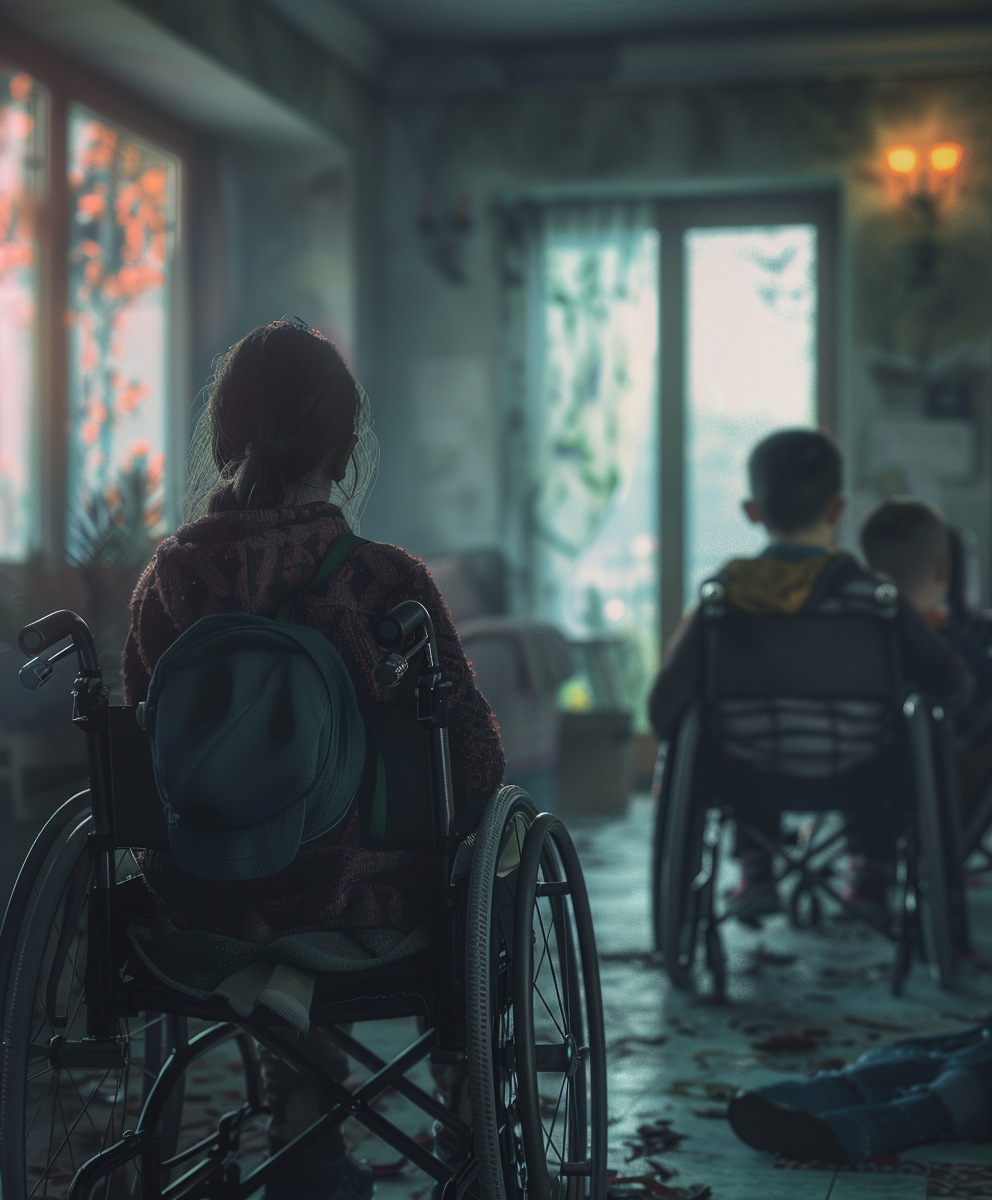-
20 July
-
04 November
-
10 July
-
12 June
-
05 June
-
24 September
-
19 September
-
10 May
-
26 April
Son Infuriates Parents By Telling Them He Won’t Be A Carer For His Two Disabled Siblings

Despite the love one may have for their family, sacrificing personal aspirations such as education or starting a family to care for relatives may not be feasible for everyone.
This Redditor refused to sacrifice his future to become the carer for his two siblings with disabilities. Unfortunately, his parents couldn't understand his perspective, as they had always seen him primarily as someone who would care for his other two children in the future.
Son Infuriates Parents by Refusing to Be a Carer for Disabled Siblings

A young adult has decided not to take on the role of carer for his two disabled siblings, leading to conflict with his parents.
AITA for Telling My Parents They Need to Find an Alternative Solution for Long-Term Care for My Disabled Siblings Because I Will Not Be the Solution?
The Story: I (19M) have two older siblings who were both born with severe disabilities due to an inheritable gene that both my parents are carriers of. They had me with the hope that I would take care of my siblings when they could no longer do so. It was a gamble, as I could have been born with the same disabilities or been a carrier of the gene.
My parents didn't consider the risks. They initially planned to adopt but were rejected due to my siblings' disabilities, as it was deemed they couldn't adequately care for another child. So they decided to have me. Once they knew I wasn't disabled at birth, they stopped caring about my future because, in their minds, it was set in stone. I was raised to take over the care of my siblings, taught what to do, and my parents interfered with my education.
They would pull me out of school just enough to cause trouble but not enough to get me expelled, aiming for me to perform poorly enough to either drop out or not graduate, preventing me from leaving for university. Despite this, I worked hard and achieved the best grades I could under the circumstances.
I only learned about my risk of being a carrier in the final two months of secondary school. My parents didn't care because they never planned for me to marry or have children; I was supposed to be a carer for life. After finishing school, I moved out and went to university, much to my parents' dismay. I have not told them, but I got tested for the gene because I want to have children without the risk of them having the same disabilities as my siblings. I am not a carrier, which is rare but a huge relief.
This revelation made me angrier at my parents for their lack of concern. They frequently leave voicemails shaming me for going to university and moving away, accusing me of abandoning them and my siblings. They said I would be out of practice. So, I called them and told them I wasn't coming back and they needed to find an alternative solution for long-term care because I wouldn't be the solution. I won’t sacrifice my life for this. My parents said it was disgusting for me to say that and insisted I should love my siblings enough to care for them, especially since they are highly dependent. Am I the a*****e?
Caring for a Loved One Can Be Overwhelming
Caring for someone with a disability can be incredibly demanding, both physically and mentally. Family members often take on the role of carers for people with disabilities.
According to the Family Caregiver Alliance, in 2015 there were roughly 43.5 million carers in the United States. By 2020, this number had grown to 53 million, and by 2030, it is estimated that 73 million people in the US will be 65 years or older, many of whom will need daily assistance. The number of carers is likely to continue growing.
Carers spend countless hours looking after others. Some do it as a job, while others do it out of kindness. According to the Centers for Disease Control and Prevention (CDC), the care provided by unpaid carers would cost around $470 billion annually if purchased. In 2023, carers spent an average of 26 hours per week providing care, with some spending between 10 and 29 hours and others spending 30 hours or more.
The Impact of Caregiving
Providing care for 30 hours a week is nearly equivalent to a full-time job. While some people are willing to sacrifice personal opportunities, others are not, as caregiving is both time-consuming and emotionally challenging. A study on family health functioning and care burden in families with special needs children found that parents of disabled children often feel physically drained and lack the energy for personal activities or household chores. They also experience mental frustration, anxiety, anger, and helplessness, worrying about medications, treatments, and the impact on other family members.
In this case, the parents focused more on the impact of their non-disabled child on their disabled siblings, rather than his own needs and aspirations. The Redditor was unwilling to skip university or the chance of starting his own family because his parents relied on him to care for his siblings. The online community supported his decision, noting that his siblings were not his responsibility and that he deserved to live his own life.
Netizens shared their thoughts in the comments, agreeing that the OP was not in the wrong for refusing to become a lifelong carer for his siblings.
Tags: Disabled Siblings Parents
Last Articles
- Odyssey will open its first UK campus in Marylebone, London, April 2025 - - The award-winning global preschool for children 0-5 ...
Read moreEPIC GLOBAL PRESCHOOL, ODYSSEY, COMING T...
Londonnews554XXXAn award-winning preschool offering from Asia is to open its first campus in London, bringing a new global ‘limitless learning’...
Read moreParenting is no easy task, and for Jordan and Briana Driskell, raising their quintuplets—Zoey, Dakota, Hollyn, Asher, and Gavin&mdash...
Read more0 comments
No messages yet




